Why are large-diameter steel pipes mostly welded with steel
Update:2024-12-19 View(s):206 Keywords :large diameter steel pipe, welded large diameter steel pipe, welded steel pipe
1. The uses of large-diameter stainless steel pipes can be divided into oil well pipes (casing, oil pipes drill pipes, etc.), pipeline pipes, boiler pipes, mechanical structure pipes, hydraulic support pipes, gas cylinder pipes, geological pipes, chemical pipes (high-pressure fertilizer pipes, petroleum cracking pipes) and ship pipes, etc.
2. The thicker the wall thickness of the solution, the more cost-effective and wise it is. The thinner the wall thickness, the greater the processing cost;
3. The process of the product determines its limitations. From the general seamless steel pipe, the precision is low: uneven wall thickness, low brightness of the pipe appearance, high cost of fixed length, and in the appearance of pitting, the black spots are difficult to take away;
4. Detection and plastic must be processed offline. So it is really in higher pressure, high strength, mechanical structure wood reflects its superiority.
5. The corrosion resistance of large-diameter stainless steel welded pipes depends on the alloy components contained in the steel. Chromium is the basic component of corrosion-resistant stainless steel, about 12% of the steel contains chromium, which reacts with oxygen in the corrosive medium to form a thin oxide film (passivation film) matrix on the steel surface to prevent further corrosion of the steel. Remove chromium and stainless steel seamless pipes commonly used alloy components you will find nickel, molybdenum, titanium, niobium, copper, nitrogen, etc., to meet the specifications of different utilization of stainless steel organization and performance. Steel pipe reducers are readily available within the supply range of commodity accessories produced in imperial and metric sizes depending on the end use.
Advantages of large-diameter stainless steel pipes:
1. Welded steel pipes are continuously produced online. The thicker the wall thickness, the greater the investment in the unit and welding equipment, and the less economical and practical it is. The thinner the wall thickness, the lower its input-output ratio will be.
2. The process of large-diameter stainless steel pipes is generally welded steel pipes with high precision, uniform wall thickness, and high brightness of the inner and outer surfaces of the steel pipe (the surface brightness of the steel pipe is determined by the surface grade of the steel plate), and can be arbitrarily sized. Therefore, it reflects its economy and aesthetics in high-precision, medium, and low-pressure fluid applications.
3. The production process of welded steel pipe is simple, with high production efficiency, low cost, and rapid development. The strength of spiral welded steel pipe is generally higher than that of straight seam welded pipe. It can produce welded steel pipes with larger diameters with narrow billets, and can also produce welded steel pipes with different diameters with billets of the same width. However, compared with straight seam steel pipes of the same length, the weld length increases by 30~100%, and the production speed is lower. Therefore, most smaller-diameter welded pipes use straight seam welding, while large-diameter welded pipes mostly use spiral welding.
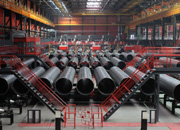 Threeway Steel is known as a professional supplier engaged in manufacturing and distributing a wide range of steel pipe, and our headquarter located the central part of China – Hunan and six associated factories throughout China.
Threeway Steel is known as a professional supplier engaged in manufacturing and distributing a wide range of steel pipe, and our headquarter located the central part of China – Hunan and six associated factories throughout China.
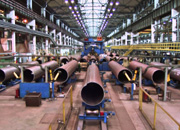 Threeway Steel is known as a professional supplier engaged in designing, manufacturing and distribution of a wide range of steel products with the headquarter located the central part of China – Hunan and six associated factories throughout China.
Threeway Steel is known as a professional supplier engaged in designing, manufacturing and distribution of a wide range of steel products with the headquarter located the central part of China – Hunan and six associated factories throughout China.
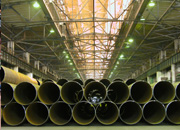 Threeway Steel is known as a professional supplier engaged in designing, manufacturing and distribution of a wide range of steel products with the headquarter located the central part of China – Hunan and six associated factories throughout China.
Threeway Steel is known as a professional supplier engaged in designing, manufacturing and distribution of a wide range of steel products with the headquarter located the central part of China – Hunan and six associated factories throughout China.
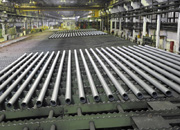 Threeway Steel is known as a professional supplier engaged in designing, manufacturing and distribution of a wide range of steel products with the headquarter located the central part of China – Hunan and six associated factories throughout China.
Threeway Steel is known as a professional supplier engaged in designing, manufacturing and distribution of a wide range of steel products with the headquarter located the central part of China – Hunan and six associated factories throughout China.
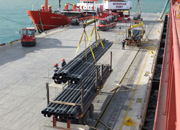 Threeway Steel is known as a professional supplier engaged in designing, manufacturing and distribution of a wide range of steel products with the headquarter located the central part of China – Hunan and six associated factories throughout China.
Threeway Steel is known as a professional supplier engaged in designing, manufacturing and distribution of a wide range of steel products with the headquarter located the central part of China – Hunan and six associated factories throughout China.

